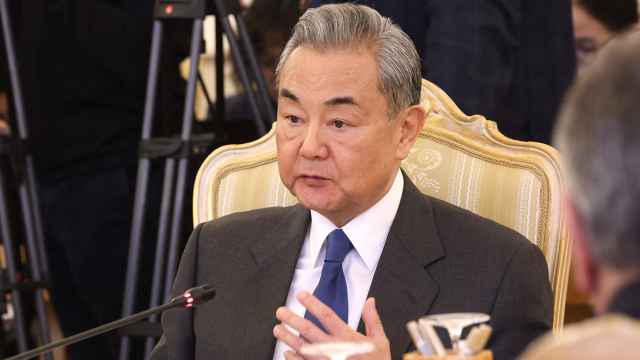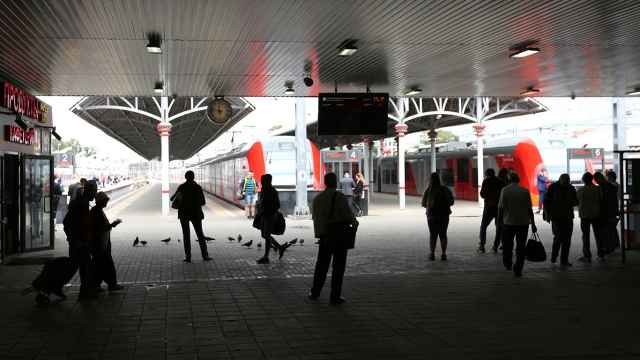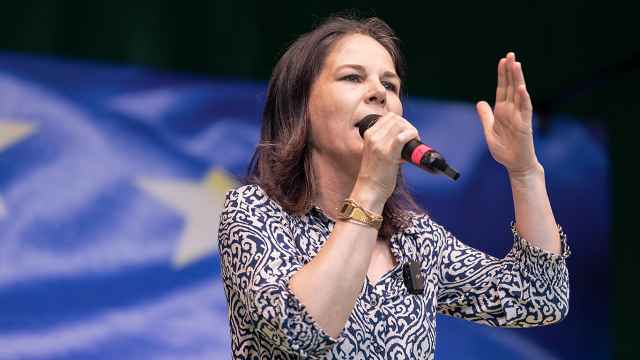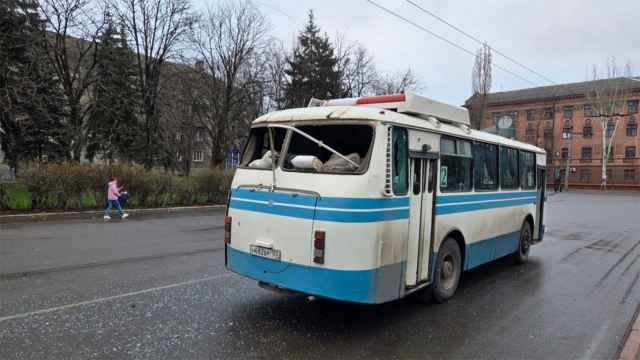In an attempt to hike government earnings and push capital into the shaky Russian stock market, the Finance Ministry has proposed amendments aimed at taxing investors who have safeguarded their savings in residential real estate.
Currently, the entire profit from the sale of a house or apartment is tax-exempt if the person has owned the property for more than three years, which has led to sellers simply holding on to their properties until the period passes.
Under the new system, owners of more than two apartments would have to pay a 13 percent tax on the revenues, regardless of the length of ownership, Deputy Finance Minister Sergei Shatalov told Vedomosti.
People selling their only property, meanwhile, would get to keep all proceeds.
Similarly, income from the sale of the ubiquitous family dacha, or small country summerhouse, would be tax-free provided that the building has an area no greater than 50 square meters, Shatalov said.
The tax exemption can apply to owners of two properties in certain circumstances. When someone purchases a second apartment and then sells the first one, they can receive an exemption on the sale, as can those who sell a second residence valued at no more than 5 million rubles ($140,000) that they have owned for more than three years, Shatalov said.
This 5 million is a "very strange bar" for Moscow, where there are very few properties to be found at such a price either on the primary or secondary market, said Maria Litinetskaya, general director of Metrium Group.
The amendments have been presented to President Vladimir Putin, who verbally approved of the idea, two government officials told Vedomosti.
A definitive decision has not been reached, Putin's spokesman Dmitry Peskov said.
In addition to benefitting the government's budget, the proposed amendments are intended to keep money circulating through the economy, said Dmitry Khalin, managing partner of IntermarkSavills.
"For the economy, for the banking sector, for the stock market, money that is invested in real estate stands still and is essentially frozen," Khalin said.
With the current exemptions, the government essentially promotes real-estate as an investment vehicle over other options such as bank deposits or stocks, Litinetskaya said.
Between $5 billion and $10 billion was invested in residential real estate last year, primarily in Moscow, the Moscow region, St. Petersburg and cities with populations of one million, Khalin said.
About 25 to 30 percent of apartments in new construction projects are purchased by investors, Khalin added. In total, this adds up to About 50,000 or 60,000 purchases yearly in Moscow and the Moscow region and between 70,000 and 80,000 deals across Russia.
Investment in real estate increased last year when the Central Bank began to revoke banking licenses, pushing investment purchases up 5 percent in the elite sector, said Yelena Yurgeneva, head of the luxury real estate department at real estate consultancy Knight Frank.
The market for cheaper housing has seen a much more significant boom in recent months, as Russians hurried to protect their ruble savings as the currency fell. There were 20 percent more property transactions in Moscow in the first two months of 2014 versus the same period last year, according to realty firm Est-a-Tet.
If enacted, the tax amendments are unlikely to substantially diminish investors' interest in real estate, Investcafe analyst Roman Grinchenko said.
"The amount of the tax payments will be included in the final price for the buyer, and as a result the investors' profit will not suffer," Grinchenko said.
There is a certain group if investors who could be put off by the tax. "It is the small-time investors who will leave, those for whom loss from the tax is already a significant decline in earnings," Khalin said. These investors make up about 25 percent of investors in real estate, he added.
These investors, who lack the financial literacy needed to switch to stock market investments, are likely to turn to large, reliable banks to safeguard their savings, Khalin said.
"Only 1 or 2 percent of the population has the qualifications to participate in the stock market," he said.
Knight Franks' Yurgeneva agreed that the stock market is unlikely to see a sudden inflow of capital from disillusioned real-estate investors.
"Real estate is the single investment that any nonprofessional can make and with 90-percent certainty receive investment returns. If you take the same amount and put it in the stock market, not understanding anything at all, you will most likely lose a lot of money, not just a 13-percent tax," Yurgeneva said.
Contact the author at d.damora@imedia.ru
A Message from The Moscow Times:
Dear readers,
We are facing unprecedented challenges. Russia's Prosecutor General's Office has designated The Moscow Times as an "undesirable" organization, criminalizing our work and putting our staff at risk of prosecution. This follows our earlier unjust labeling as a "foreign agent."
These actions are direct attempts to silence independent journalism in Russia. The authorities claim our work "discredits the decisions of the Russian leadership." We see things differently: we strive to provide accurate, unbiased reporting on Russia.
We, the journalists of The Moscow Times, refuse to be silenced. But to continue our work, we need your help.
Your support, no matter how small, makes a world of difference. If you can, please support us monthly starting from just $2. It's quick to set up, and every contribution makes a significant impact.
By supporting The Moscow Times, you're defending open, independent journalism in the face of repression. Thank you for standing with us.
Remind me later.






